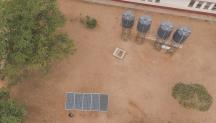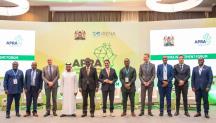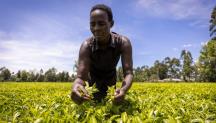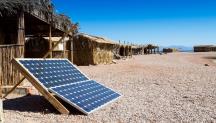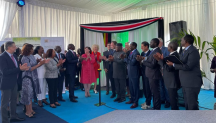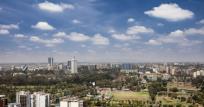
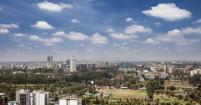
IRENA to Host 3rd International Off-Grid Renewable Energy Conference in Nairobi
Newsletter
Access to electricity in remote and rural areas is necessary to combat poverty and meet the recently adopted Sustainable Development Goals. Roughly 15% of the world’s population lives without electricity and many more with unreliable access. Off-grid renewable energy solutions are a cost-effective, environmentally-sustainable and scalable option to expand access to electricity to reach unconnected areas.
The business case to deploy off-grid renewable energy solutions (stand-alone and mini-grid systems) in rural areas has never been stronger. The big question is – How can we scale-up off-grid renewable energy deployment?
To tackle this question, IRENA is organising the third International Off-grid Renewable Energy Conference from 30 September to 1 October 2016, in Nairobi. IOREC 2016 will convene the key stakeholders from the off-grid sector, including the private sector, financiers, policy makers and development institutions, to share experiences and best practices on design and implementation of enabling policies, tailored financing schemes, innovative business models, and technology applications.
IOREC 2016 will be organised in partnership with the Kenyan Ministry of Energy and Petroleum and the Alliance for Rural Electrification (ARE). In parallel to the conference, ARE will organise an Exhibition, to give the private sector an opportunity to showcase projects and products.
IOREC 2016 will take place back-to-back with the SEED Africa Symposium (28-29 September), an international forum to stimulate growth of social and eco-entrepreneurship in Africa.
Meeting a need
The last IOREC, held in Manila in 2014, came to a general consensus that off-grid renewables represent a cost-effective, clean, and reliable option to expand electricity access in rural, peri-urban, and island contexts. A call to focus on a holistic approach towards energy access — that takes into account electricity, water, health, telecommunication, and education — with customisable solutions for clean energy that can spur socio-economic development, was made. Key findings and recommendations have been published for both IOREC 2012 and IOREC 2014 as comprehensive outcome papers.
With the last conference’s closing remarks in mind, the nine sessions of IOREC 2016 will be divided between the following four overarching themes: stand-alone systems for rapid expansion of electricity access, technology innovation to unlock new opportunities, mini-grid development to meet growing demand, and socio-economic benefits of off-grid renewable energy system deployment.
To learn more about IOREC and to find out how to register for the conference, please visit the official website www.iorec.org.
